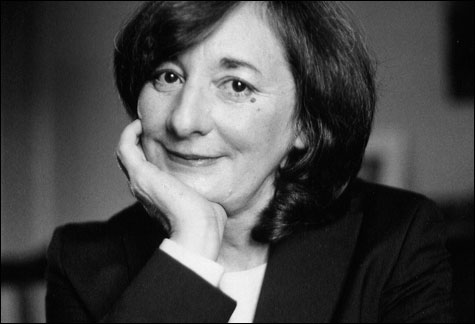
SWAN SONG: Nabb’s own death shadows the final installment of the Guarnaccia series. |
Not in the Flesh | By Ruth Rendell | Crown | 320 pages | $25.95 Vita Nuova | By Magdalen Nabb | Soho | 272 pages | $24 |
Not in the Flesh is Ruth Rendell’s 21st Inspector Wexford novel since she and the character debuted in 1964. In that time, she has also published 23 stand-alone novels, seven collections of short stories, two novellas, and 12 novels as “Barbara Vine.” And if anything, Rendell, who is now 78, is one of those artists to whom age has brought greater clarity and sharpness to a moral vision that was pitiless to begin with. It’s with good reason that John Mortimer’s line (“If it weren’t for a ridiculous literary snobbery about ‘crime writing,’ Ruth Rendell would be acclaimed as one of our most important novelists”) is often quoted by her admirers.Rendell is too fine a writer and has, you feel, simply seen too much of human behavior to coddle anyone’s sense of niceties. Although the finish of some of her novels (notably A Sight for Sore Eyes and The Bridesmaid) can seem as if O. Henry has donned death’s own shroud, Rendell does not work the grisly side of the street. What’s grotesque in her work is the pettiness and vanity and hypocrisy of people, and the way those small sins often slide effortlessly into the commission of larger ones. Rendell is a moralist, not a nihilist. She refuses to pretend shock, but that doesn’t mean that she is incapable of being appalled.
In the past few Wexford novels, Rendell’s complete lack of hesitation in saying what people are has seemed to parallel her inspector’s increased impatience, a quality less to do with the crankiness of age than with the accumulation of experience. (Reading Wexford’s dubiousness toward a fantasy novel he’s told he won’t be able to put down reminded me of a stormy winter morning years ago in a Harvard Square bookshop. Some twit, oblivious that some of us still had to go to work, came in and chirped, “What a wonderful day to stay in and re-read The Hobbit!” Miraculously, she left the store alive.) Not in the Flesh gets a good, classic start for a mystery novel: a pensioner who pulls in some extra money truffle hunting with his dog stumbles on a long-buried corpse. Wexford and the rest of the Kinsgmarkham police squad (his natty, somewhat provincial partner Mike Burden; the younger, tiresomely PC Hannah Goldsmith, to name the most prominent) investigate. And as always, the people they encounter are so plausible that part of your brain feels compelled to protest that they could be part of the human race.
Of course, the strength of Rendell’s writing is that there’s no denying it. Her withering eye can border on the cruel. The grotesquerie of watching a younger home-care worker flounce and fuss over his elderly charge comes from our knowledge that this woman’s blinkered self-satisfaction has already impeded knowledge of one death. Rendell makes us recoil from her pampered treatment, as if we were seeing ignorance itself being rewarded. At moments like this, Rendell becomes something like the anti-Dickens. Dickens’s caricatures were so outsized they burst the bounds of their characters. Rendell’s portraits are so particularized we are aware we’re encountering a type of pettiness (or pride, greed, etc.) that shrinks the very notion of what it means to be human. Luckily, the same cannot be said of Rendell’s cool revulsion. Her body of work is that of someone who has been nagged by the question of what it means to be human, and the conviction that we should be able to do better.
 Related
Related:
More the mystery, Appetizers, Med noir, More 
- More the mystery
What’s the big deal about Kate Atkinson? If you read the rapturous reviews of her previous novel, Case Histories , you’d conclude she had written an engrossing mystery that was, you know, more than just a mystery.
- Appetizers
Before Dennis Lehane found success — or success found him — with the publication of Mystic River in 2001, and even before he built his reputation with the Kenzie/Gennaro crime novels, he wrote short stories.
- Med noir
It all starts with murder.
- Magical Mystery Tour
A thoughtful tribute to the pulp classics of the 1940s and 50s, The Colorado Kid is just the latest installment in an increasingly diverse and interesting body of work written under the pseudonym Richard Bachman.
- Fearsome Otto
My one brush with the late Otto Preminger seems like a typical encounter.
- Hello to all that
In a time of tenuous allegiances and deep culture clashes, Julian Barnes’s new novel asks, "What does it mean to be included, to be excluded?”
- New Portland writer gets a life-changing surprise
She calls the award “miraculous,” and indeed, it’s an apt narrative for a woman who relishes magical realism.
- When I'm sixty-four
It’s significant that for this twenty-something reader, the least gripping tales in Elizabeth Strout’s new “novel in stories” are those that deal with teenagers and young adults.
- In the mood for Lust
During one of the sex scenes that have earned Ang Lee’s adaptation of Eileen Chang’s short story its notoriety, I had to ask myself: how did that foot get there?
- Hip-hop history interview and podcast
Authors Jeff Chang and Brian Coleman talk about the latest wave of hip-hop criticism.
- Faith healing
The pages of historian Taylor Branch’s third volume in his parallel biography of Dr. Martin Luther King and the civil-rights movement turn heavily.
- Less

 Topics
Topics:
Books
, Media, Books, John Mortimer, More  , Media, Books, John Mortimer, Mystery Novels, Ruth Rendell, Less
, Media, Books, John Mortimer, Mystery Novels, Ruth Rendell, Less 